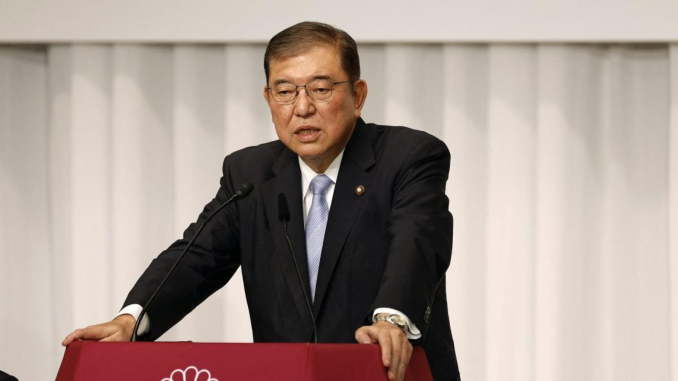
Japanese Prime Minister Shigeru Ishiba has announced his resignation as president of the Liberal Democratic Party (LDP), just weeks after the ruling coalition suffered a historic defeat in the July elections.
Ishiba’s decision, made public on Sunday, follows mounting pressure from within the party for him to step down over the loss, according to AlJazeera. He had initially resisted those calls, insisting he wanted to remain in office long enough to oversee the proper implementation of a tariff deal recently struck with the United States.
“With Japan having signed the trade agreement and the [US] president having signed the executive order, we have passed a key hurdle,” Ishiba said on Sunday.
“I would like to pass the baton to the next generation,” he added.
Ishiba will remain prime minister until the Liberal Democratic Party (LDP) elects a new leader to succeed him, a transition that adds to the political uncertainty confronting the world’s fourth-largest economy.
Since taking office last October, the 68-year-old leader has presided over a series of electoral setbacks that stripped his coalition of its majority in both houses of parliament.
The defeats, fueled largely by public frustration over rising living costs, have hampered Ishiba’s ability to push forward his policy agenda.
Growing instability within the party intensified calls for his resignation, particularly from right-wing factions that blamed him for the ruling bloc’s poor performance in July’s House of Councillors election.
According to local media, Japan’s agricultural minister and a former prime minister met with Ishiba on Saturday evening in an effort to persuade him to step down.
At a press conference on Sunday, Ishiba confirmed his resignation and said the process to elect his successor would begin immediately.
Ishiba’s resignation comes only days after U.S. President Donald Trump signed an executive order on Thursday reducing tariffs on Japanese car imports from 27.5 percent to 15 percent, formalising an agreement first announced in July.
Under the deal, most Japanese exports to the United States will now face a 15 percent levy.
